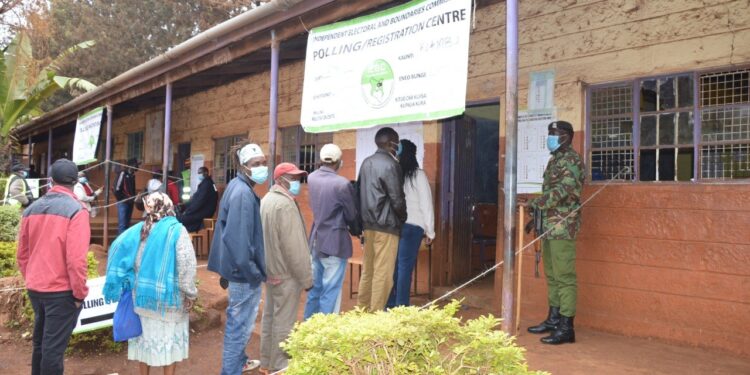As the Kenyan general election scheduled for August 9 this year approaches, concerns have continued to grow among human and civil rights defenders on the preparedness of media to play their vital role in ensuring free, fair, and verifiable elections.
Of particular interest has been the ability of community media, on which most Kenyans rely for information, to navigate the use of digital technologies, which have grown to encompass the entire electoral process.
Information and communication technologies have assumed a critical role in the administration, organisation, and reporting of modern elections, yet there is a worrying lack of preparedness among journalists in community and vernacular media to employ the appropriate technology and report knowledgeably on such developments, participants in a recent webinar organised by Journalists For Journalists, in cooperation with The Angaza Movement, said.
“We have a huge number of journalists who do not know how to manipulate technology in the best way possible. This is a serious gap if the media houses are expecting these journalists to play an important role in transmitting election results back to newsrooms,” William Oloo Janak, the chairman of the Kenya Correspondents Association (KCA), told the “Reporting on Election Technology from the Grassroots” webinar. The discussion aimed to examine the state of ICT preparedness in key institutions involved in the Kenyan polls and demystify the digital expertise, processes, and infrastructure that can be used to deliver successful elections.
Participants also expressed concern that although the grassroots and vernacular media bear a great responsibility in building the public’s confidence in the institutions managing the elections and, ultimately, the people’s faith in the outcome by informing them about all the issues concerning the polls, they are hampered by inadequate preparation and technological illiteracy.
Nicholas Midiwo, the station manager at Mikayi FM, said community media and civil society play a key role in restoring trust in institutions such as the Independent Electoral and Boundaries Commission (IEBC), whose reputation has been tainted by its questionable management of past elections.
Therefore, such institutions should promote safe, fair, and professional media coverage of elections by encouraging full, fair and efficient disclosure of information to journalists.
“We are the voice of the people and we act as the linkage between different structures in society. Our audience is the electorate,” Midiwo said.
Toepista Nabusoba, a senior journalist at the Kenya Broadcasting Cooperation, agreed, adding that technology is part of awareness in election coverage and meeting voters’ need to understand the machinery involved in the electoral process.
“Vernacular media has a responsibility to report elections fairly by giving equal coverage to all those involved. The media has a responsibility to report candidly and objectively,” she said
In addition, the journalist explained, reporters have an individual responsibility to understand the mechanisms involved in the entire electoral process.
The participants pointed out the need for training of journalists to enable them to play their role effectively.
Ken Osoro, a senior reporter at Pamoja FM, asked the Media Council of Kenya to lead efforts to enlighten grassroots media on the concept of technology, right from voter registration to tallying of election results.
Janak expressed concern that media houses are not willing to invest in the training of journalists from rural areas. He explained that although several organisations, including the Kenya Correspondents Association, provide training opportunities, many media houses are not willing to send their reporters to attend the sessions.
He added that most rural journalists do not have the capacity to report effectively on this year’s elections as many of them are fresh college graduates who have not covered such events before, and have no background knowledge of what happened in previous polls.
“There is a capacity gap, especially for rural journalists in terms of knowing the history of electoral issues,” said the KCA chairman.
“Before elections, training should be provided to enhance professional election reporting. Journalists should receive training not only on safety but their right to work without threats,” Midiwo said.
The Kenya Media Sector Working Group, which brings together organisations interested in deliberating on and finding solutions to problems facing the media industry, has undertaken to engage with the IEBC to ensure that journalists receive training and adequate briefings to help them understand the electoral process.
Janak supported the initiative, saying the electoral management body is the right organisation to provide the appropriate information in a credible, fair, and transparent manner to enable the media play its role of fair reporting.
Midiwo said that in order to promote safe, fair, and professional media coverage of elections, the IEBC and other relevant institutions should encourage full, fair, and efficient disclosure of information to journalists.
He added that many of the problems associated with past polls can be attributed to lack of preparation on the part of the election managers, who did not do enough to alleviate technological illiteracy among journalists. He asked the IEBC to start rolling out training at the regional level to enable the media to sensitise the masses on the important issues associated with the elections.







